The Operations department of any function handles the day-to-day management of activities and ensures the executive team’s implementation of initiatives and strategies. As a result, they play a crucial role in meeting business objectives.
CS Operations is an up-and-coming function, with pretty much the same objectives, for Customer Success. Similar to where CSM was many years ago, there aren’t enough experts on this function yet.
When people are starting to build out a function in an organization, the first team members pretty much define the roles they play as well.
At Rocketlane, we want to actively help out organizations trying to build this function by interviewing folks in CS Ops and bringing out their stories of successful transitions into CS Ops.
For the first installment of this series of interviews, we spoke to Jennie Li, Senior Manager, Digital Operations - Digital CSM, Definitive Healthcare. We also have Allastair Meffen, Vice President, Customer Experience, Definitive Healthcare. Here’s the conversation between them and Sri, co-founder, Rocketlane.
...
Sri: Hey, Jennie, and Allastair. Thanks for agreeing to do this. In your case, Jennie, you've come from a CSM background, but I've also heard of people who come from a product marketing background or digital marketing background because they're good with data and so on. And, what skills do each of these people bring in when they're moving from that different role into a CS Ops role, and how is it working out for the company? Where should one look for hiring new CS Ops folks? And it's probably one of those multi-dimensional roles as well, where different skillsets may matter. And as you build a CS Ops team, maybe you want to have a variety of kinds of people as well. So we’d like to discuss that today.
Jennie: This is an exciting topic and one that I'm certainly excited about. It’s what I've been doing for the past couple of years, so definitely eager to see what comes out of this with all of your efforts. So thank you for pulling all this together.
Sri: Maybe we'll start with getting both sides of the story—how the CS Ops function came into play and how Jennie became the first CS Ops person on the team. I'm going to turn to Allastair's perspective on it.
Allastair: So, almost three years ago now, Jennie was one of our senior CSMs on the team. And during one of our one-on-ones, she said to me, “Allastair, you know what, I enjoy customer success, but I want to get out out of customer-facing roles”.
And I wanted to be able to help. We had, at that point, been putting in place quite a bit of process and shaping the direction of the team. Jennie realized that she enjoyed that part of customer success and helping the team push through and find success.
So three years ago, there wasn't… there still isn’t a true CS Operations function at the moment. I, of course, had worked with sales operations teams in the past. And, I told Jennie, “Well, why don't you go and have a conversation with Kate Jensen, who at the time was our Chief Operating Officer without the title, and understand what it means to be in operations.
So, Jennie spent about three months having conversations and then actually building out her own role! So, she kept plugging away. And eventually, she came to me with both the role profile, what she would be doing, and then, we (mostly Jennie) pitched it to Kate.
And then, from there, it was pretty easy. We were able to convince our CEO, Jason, to add this new role. I spent a lot of time creating reports and figuring out the best way to document the processes and everything else. So the team was undoubtedly helping with that, but they also had their own jobs to do.
And so, it wasn't difficult to show Jason and Kate the ROI and the business impact that it would have to allow me to free up more time and Jennie to start this team.
Sri: Jennie looks like you did quite a lot of heavy lifting! Time for your side of the story.
Jennie: Allastair makes me sound much more eloquent with my delivery!
So, Allastair recalled my work history spot on. I was a senior CSM at that point. I had become a team lead. So I was helping our other CSMs, get them on the right track with their accounts, etc. From there, our company invested in bringing in an external consultant to help train and educate first-time managers or folks who are leading on that career path in management and leadership.
So they would have this consultant to help us get started in that area. And one of the training sessions, we did an exercise, and it was like a light bulb turning on that, you know, my skill set was geared towards problem solving and operations.
And there’s my empathetic nature of wanting to help others. So it seemed like a good combination of - well, I know the role, I know the problems that my team members in CSM and I are facing. So what can I do to put my skills to the test? So as Allastair put it, I walked into his office and told him I don't want to be customer-facing anymore.
And that was pretty much it. But you know, one thing that I'll always give Allastair credit for totally is after his initial shock, his immediate reaction was, “Okay, so what do you want to do?”
So this was my first experience in the corporate world, but Allastair just asked what I wanted to do and prioritized that, and from there, he helped me shepherd the idea and get it rolling.
Sri: Do you remember what you learned in your conversations with Kate? Like, what does it take to be in Operations? What skills do you need? What were you told at that point? How confident were you about pulling it off?
Jennie: Yeah. They were mainly along the lines of our product operations team. I think there was also a need there that they were exploring. So she was helping me understand and get connected with other product folks on their needs, their gaps, and having someone overseeing and making sure things are flowing in the right way as far as information coming from ours customer-facing teams to the product teams, and how that elicits a change in the way that we're doing product functions and making product updates. So, you know, while it was through the lens of product, it applies to the customer-facing side of things.
The CS Ops role is, you know, fully seeing the bigger picture and understanding how things are handing off from one process to another. Because essentially, there will be downstream effects when you make one small change to the process, whether it's something technical, which are the harder ones to solve, or if it's workflow-wise from the actual CSM. Whatever it is, it's going to trickle down to be a significant change for them—so making sure that you're aware of that and everything that could go into it.
Sri: Got it. And Allastair, you talked about how it was easy to pitch the ROI. How did you pitch it?
Allastair: So the ROI, in my opinion, on any operations team is the people who spend the time doing these things. So you’re paying them to do another job as well. And so, if you're paying me X and 40% of my time is being taken up doing operations things, wouldn't it be worth paying someone else that money and having me be 100% dedicated to my role?
The other piece is it wasn't just me who was doing this right. CSMs, a support team at the time… We were all doing this, on our off time, if you will, a week. So if you want things to get done and you want something to move quickly, the best thing to do is to have someone dedicated to ensuring that your processes are getting documented and that you are putting them in place. And that they're getting trained on, and the team has one place to go to understand who they need to talk to understand X, Y, and Z. So ultimately, it leads to better efficiency for your team. And then, on top of that, you do have a faster ramp from your team for your new hires.
You know, I make it sound like I walked into his office, and we spent half an hour talking, and he said, here's your head. It was a little bit more than that, but, you know, it wasn't there, but it also wasn't this huge, challenging conversation about it.
Sri: And how soon did you start seeing the impact of the role that was created?
Allastair: I would say it took probably three to six months. Jennie stepped into the role. She still had a book of business. We still had to transition her accounts off. She held on to a number of her accounts for quite a while—we didn't have a place to put them, or they were tough customers, and it just didn't make sense to transition them at that time. So yeah, probably three to six months. Once Jennie had offloaded everything, and then we started getting her help, it became apparent very quickly that one person wouldn’t be able to do operations. And so, we began to fill out that team. A couple of folks on the team raised their hands and said they wanted to do it now that it was available. That they'd love to be able to join Jennie's team.
And so, as it became available, we moved two folks over to Jennie's team and added a third this past summer.
Sri: Jennie, do you remember what as you created the JD, what sort of responsibilities, and what kind of KPIs did you define for yourself?
Jennie: Yeah. That's a great question. I should probably actively remember this, but, you know, it was three years ago, so much has happened since. I remember one part of it, a considerable part of it being documentation and making sure that everything was up to date. And this goes back to: What else are we saying? What about the ramp for your new hires? You know, if you have clear documentation, that's a solid chunk of the onboarding experience and training experience, mainly because we also need people to start speaking the same language. Suppose we have outdated documentation on the previous process, but the other team is looking at this updated email with the correct process. In that case, it just really trickles down to making, for lack of a better word, a sloppy customer experience. Because the customers are feeling and interacting with the CSMs who are going through this sort of change. But I remember documentation being a huge, huge part of it.
At the time, a lot of it was helping Allastair execute the strategic ideas that he had in his head. I think one of them was creating a homegrown customer health score. So through Excel and our Salesforce data, that was an excruciating exercise!
That was one of the things, but it was where we were at. At the time, I think we had just brought up our support team and our training team. We had pushed an alignment between our client sales org and our CSMs to work on accounts together.
So we wanted to enforce that relationship and start building that into a stronger working relationship and partnership between the two. Those are just the big ones that I recall.
Allastair: Jennie and I were just sort of doing this together. I had never run an operations team. Jennie had never been in operations. And so we were just reaching out to colleagues and asking for help. We wanted to know what we should be looking at. CS Operations still is relatively new, so it was all about her MBOs and the projects. And then all the documentation.
I completely forgot that we tried to build that customer health score internally. But it ended up helping us make our case, to end up purchasing churn zero. So as painful as that memory must've been, it did help us get to where we needed to be, to buy a churn zero.
Jennie: I think one interesting thing is, the definition of operations, in general, is very broad. You can think of operations as just day-to-day management; what my team and I were doing over the past couple of years was managing the day-to-day for sure—taking some of that weight off of the CSMs and the AEs where possible. But a lot of it was also implementing projects and different initiatives and also facilitating them post-implementation. It's a broad spectrum. And I think part of it, especially for teams that are maybe exploring bringing on a new person, is clearly defining what the scope is. The need for me to have a team very early on was evident because there was so much to do, and we figured that it wasn't just management of the day-to-day process that we wanted to do. It was also implementing initiatives.
Sri: So what would the mix of initiatives be?
Jennie: So implementing churn zero was a big one. And probably more recently, is working with Allastair and other members of our leadership to build what we call a “red account program” through using churn zero as a system and then also building the program in terms of guidelines, expectations, and general workflow on coaching and guiding the CSMs on better approaching our red customer health accounts that are more at risk of churning. Helping and doing what we can to support those types of higher-level initiatives is also part of the work.
Sri: So as I try to understand the journey that you’ve been through, in this role, it looks like initially there was a lot of manual effort going into it where you needed to be super systematic about documentation. You needed to be on top of data, do some analysis, and develop this sort of health score piece… So your data skills would probably have been tested in that phase. And then there's a phase where you're bringing in and implementing systems. So what would you say is the mix of skillsets that have helped you in the journey?
Jennie: Probably extremely high attention to detail, to the point of ad nauseum.
I sort of mentioned it earlier where when you're implementing, you need to be aware of what change is falling in line afterward. One change can turn into a big area. And I think it's also being aware of the organization and how we're doing things.
So say we make one minor change in how we're tracking something in churn zero, or the rest of us can be using Salesforce, but how is Billing or our new business sales team tracking that information? Because we need up-to-date customer billing information and how it is carrying over to our actual CSM.
So really seeing the big picture, but also paying attention to those tiny details when you're implementing and sort of mapping them: Is it working if I were to play the scenario out and what are all the different scenarios that could potentially happen, and what are we doing to support the CSMs or whoever it may be when they come up against that particular scenario?
Allastair: I would also say accountability is a huge part of operations, both for themselves and the team. They're not only implementing themselves. They’re also helping others implement or doing project management for other pieces. I can't count the number of times where Jennie would send a quick reminder on a Monday because there's something that either Soself or someone else was supposed to have ready-to-go on Wednesday. And you’d go, “Oh yeah, I had it on my to-do list, but it was further down, and I had missed it. So thank you for sending the reminder”.
But it’s again holding everyone accountable for whatever's being accomplished at that time.
Sri: Allastair, you mentioned that Jennie moved from CSM and that the next two people also move from the CSM function. Do you think, as you build out the team, you're thinking of it as more people are moving from CSM into CS Ops as the team needs to grow, or do you think there need to be people who bring entirely different skills also to the table, to take this function to the next level?
Allastair: That's an excellent question. As we were building out the Digital Operations team for our Digital CSM program, this was the question we had to wrangle with. And I would say the business analyst that we hired came with a CS background. So that was good to have. He understands the vocabulary that we use. But our content writer doesn’t. She’s not from a CS background. So I do think that you can pull from other areas.
But because customer success or customer experience is so new, it’s difficult to pull from other areas where they may not have been exposed to it. Sales have been around since the dawn of time, and so the vocabulary that is used there is pretty common; even people from other areas of the business understand the sales side. Whereas CS or CX is not as well understood yet.
So when I start to talk to somebody on the Operations team, I'm going to talk to them, not on purpose, but I'm going to use the language I've been using for the past decade. And so it takes a reminder that they may not understand what I'm saying. Just because I'm using many abbreviations and other things that are very common amongst myself and others who work in customer success, it may not be for them.
So, that was a long-winded way of saying yes, and we will continue to look outside of CS. But I think right now, and CS Operations is better fed from people who have worked in customer success.
Sri: So it's better if you have the heart of the team more from CS, and maybe if there are other specific skills needed, you can complement the team. Jennie, what do you think are some of those skills outside of what people who have been in CS bring to the table would be needed to have a well-rounded CS Ops team?
Jennie: I think just more of the broader skills are a high level of organization, keeping a tab on all the things going on. I can only speak to our adventure in building this new team. You need intellectual curiosity: are you going out and trying to figure things out on your own? And that shows the motivation and the drive to learn and get yourself familiarized with the subject.
And indeed, adaptability too. Again, when we were first starting, projects were changing, and priorities were shifting. So being able to keep up with that is huge, a huge advantage as well. So just being curious and taking the initiative. So for sure, those two in tandem and pushing yourself to learn the subject is essential coming from the outside.
Sri: Do you think program management, project management, and data analysis skills are needed for this function?
Jennie: Yes, definitely helpful. Definitely, beneficial. And for me, it was lucky that I've learned a ton from Allastair from the data end as well. So as far as analysis goes, he was able to help point out specific patterns and things of the data that I would not have seen just starting in this area.
So definitely more exposure to analyzing data and making sense of it. And then the ability to apply it is undoubtedly helpful. And, another is project management—there was so much going on, so many initiatives, so being able to stay organized and influence others to help you move things along the way is an important skill.
Sri: Allastair, how has that worked out in terms of keeping your initiatives on track every quarter?
Allastair: So Jennie's team was not just focused on customer success. They also helped our account executive teams. So post-sale, our customer experience team handles the value delivery of the product. And then we have an account executive team who is responsible for upselling, cross-selling, renewal… All the business side of the world. And so, Jennie's team was handling operations for both customer experience and the account executives. So they had to learn the vocabulary and what it means to be an account executive, how they talk about things, etc.
Sri: This is useful. It was great chatting with you, Allastair and Jennie. Thanks for participating in this interview, and thanks for sharing your insights!


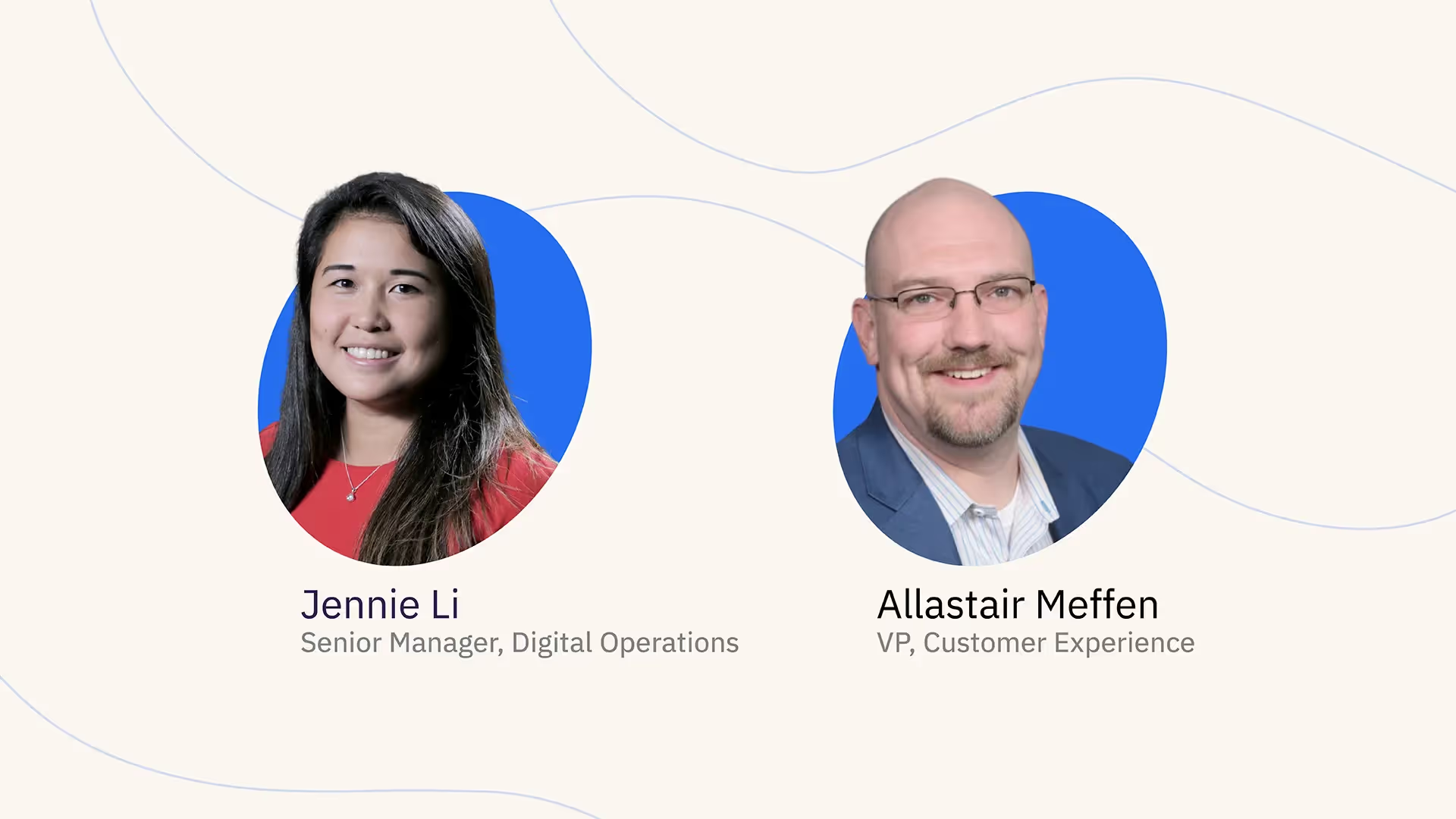





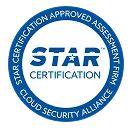
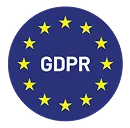










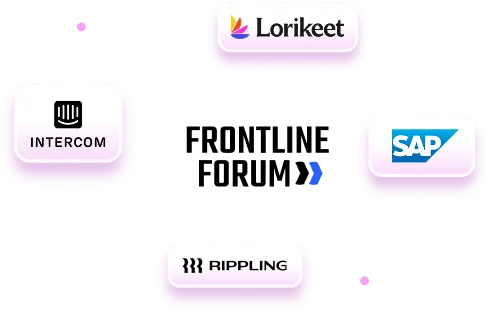
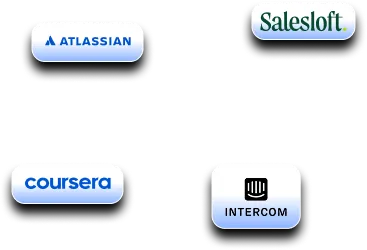
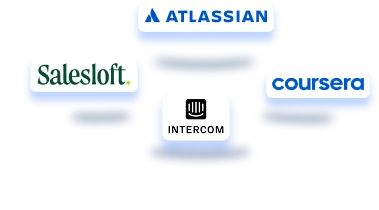
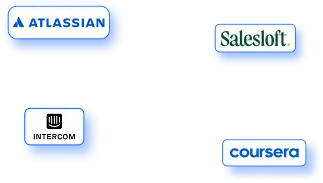
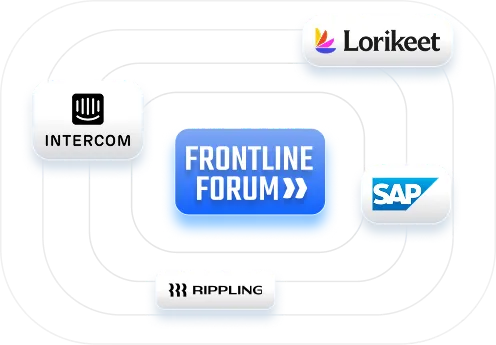
.webp)